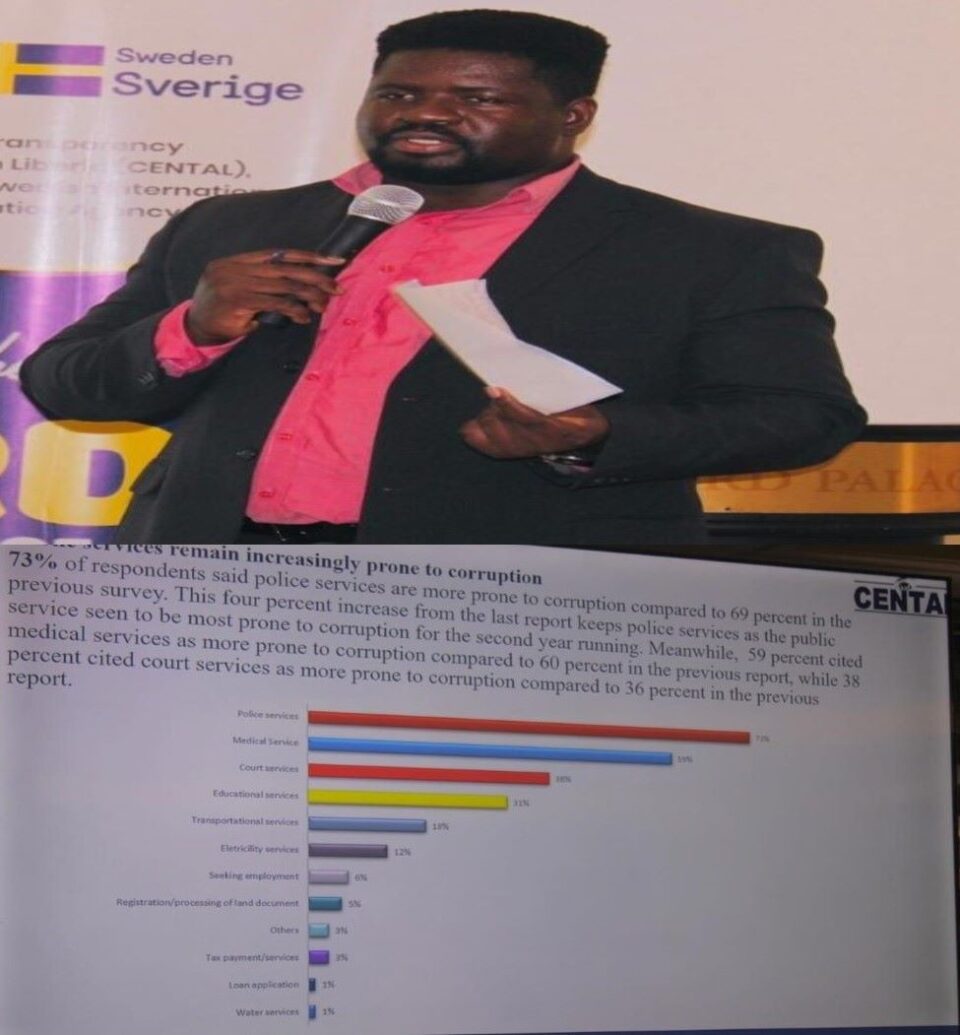Monrovia, Liberia- For reasons including the lack of prosecution and adherence to the culture of transparency and accountability in Liberia, 90 percent of respondents interviewed for the 3rd edition of the State of Corruption Report (SCORE), produced by the Center for Transparency and Accountability in Liberia (CENTAL) hold the view that the level of corruption in the country is high.
Nine out of ten citizens have held this view for the third year running. Just one percent thinking otherwise.
Over the last three years, the State of Corruption Report (SCORE), an activity of the National Integrity Building and Anti-Corruption Program (NIBA) support by the government and people of Sweden through the Swedish International Development Cooperation Agency (SIDA) has reflected people’s views and experiences of corruption in Liberia and gauged public reactions about the fight against corruption. SCORE is a product of mixed methods including desk review, survey, key informant interviews, and media monitoring and fieldwork conducted between May and August with a survey of 728 people in nine counties including Grand Cape Mount, Margibi, Montserrado, Nimba, Bong, Grand Bassa, Rivercess, Gbarpolu, and Bomi.
Media monitoring and tracking exercises were also carried out between October 2022 and August 2023 to document incidences of corruption. To better understand trends of public perceptions and experiences, the results of SCORE 2023 are presented against the results of the previous reports.
Meanwhile, 67 percent of those surveyed hold the view that government’s commitment to fighting corruption is low. This represents a 5 percent increase in the number of respondents rating government’s commitment as low in the previous report. The report also found that public resources continue to be channeled through questionable budgetary allocations for the benefit of public officials. For instance, while the budget line on legislative engagement and accessibility has been removed, a whopping US$10,406,380.00 was allocated for legislative committee hearings. Regarding the Judiciary, the report found that Judges are occasionally subject to pressure from the executive, legislature, and traditional societies. Also, the report states that the jury system is sometimes subject to manipulation.
Although local and international actors are continuing to step up efforts against corruption, the report found the lack of prosecution of several individuals accused of corruption and other crimes remains the chief reason for the high level of corruption. This revelation places more responsibility on the government of Liberia to adequately fund anti-graft institutions like the Liberia Anti-Corruption Commission (LACC) to deliver on its mandate of tackling the scourge of corruption.

